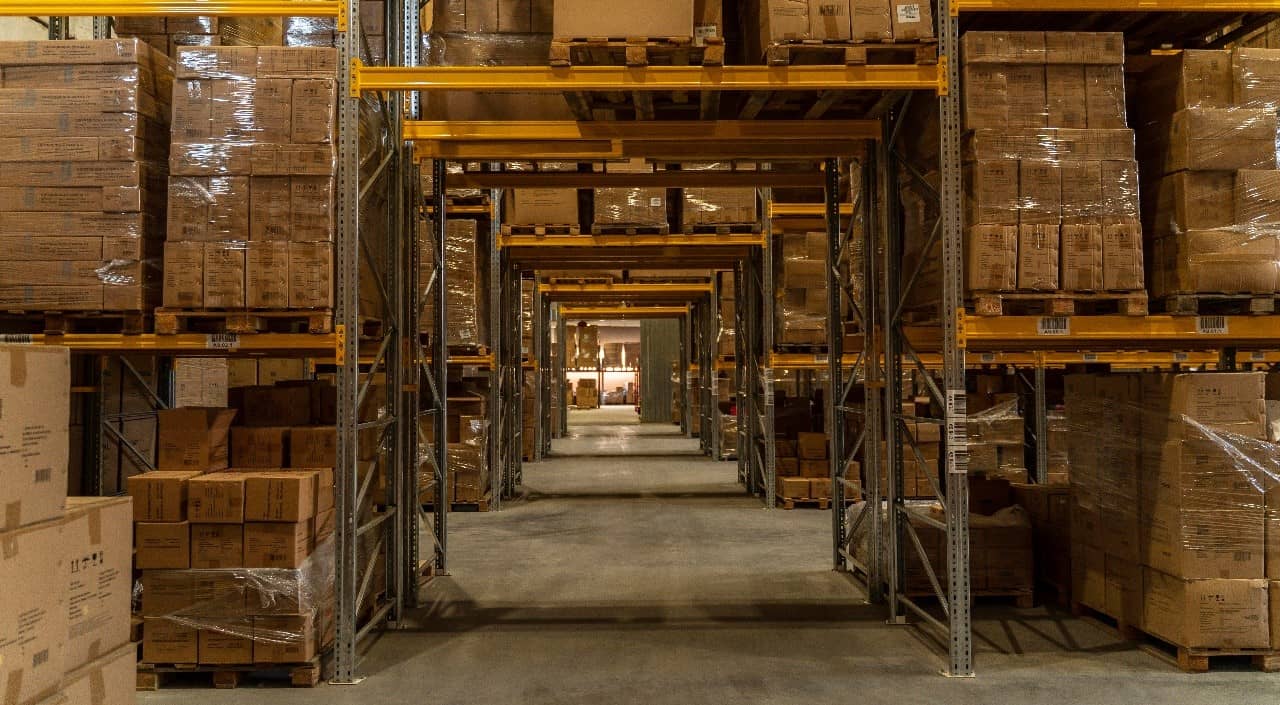The Fast-Moving Consumer Goods (FMCG) industry is a vital component of our daily lives, providing us with essential products we use every day, such as toothpaste and laundry detergent. This industry is driven by the needs and preferences of consumers, who expect high-quality products that are readily accessible and affordable. FMCG companies must consistently innovate and adapt to shifting consumer trends and demands while also staying ahead of the competition.
Despite the challenges brought about by evolving market dynamics and consumer trends, the FMCG industry remains resilient and continues to flourish. By placing human-centricity at the core of their operations and prioritizing the delivery of superior products to consumers, FMCG companies drive growth and make a positive impact on society.
As consumers, we rely on the FMCG industry for the products that we need to carry out our daily activities. From basic necessities to luxury items, FMCG products play a critical role in our routines and contribute to our overall well-being. With its emphasis on human-centricity, the FMCG industry ensures that we have access to products that are tailored to our specific needs and preferences.
Challenges Faced by FMCG Companies
FMCG companies face various challenges in warehousing, including limited warehouse space, inefficient inventory management, high labor costs, and complex supply chain networks.

Limited Warehouse Space
Fast Moving Consumer Goods (FMCG) companies face a significant challenge when they experience growth in demand for their products, and they have limited warehouse space. Acquiring additional storage space can be expensive, making it an unfeasible option for many companies. Therefore, optimizing existing space becomes critical. However, this can be challenging, especially when products have different sizes and shapes, and there are various storage requirements. Companies need to adopt effective space utilization strategies to maximize their warehouse capacity. This can include using vertical storage solutions, implementing automated inventory management systems, and reorganizing product placement. Overall, FMCG companies must find cost-effective ways to manage their warehouse space to meet their growing demand while keeping costs under control.

Inefficient Inventory Management
Efficient inventory management is crucial for FMCG companies to meet their customer demands while minimizing costs. However, inefficient inventory management poses significant challenges to these companies. Poor inventory management leads to stockouts, where the demand for a product exceeds the supply, resulting in lost sales and reduced customer satisfaction. On the other hand, overstocking occurs when companies order excessive inventory beyond their demand, leading to high carrying costs, decreased cash flow, and waste due to product obsolescence. Obsolete inventory is a common problem that arises when companies fail to manage their inventory levels effectively, leading to expired products or changes in consumer preferences. This can cause significant financial losses and negatively impact a company’s reputation. In conclusion, FMCG companies must adopt efficient inventory management practices, such as implementing inventory tracking systems, adopting lean inventory practices, and regularly reviewing inventory levels to minimize costs and maximize profits.
High Labor Costs
Labor costs account for a significant portion of the warehousing expenses of FMCG companies, making it a significant challenge for them. These high costs result from various factors, including manual processes, inefficient workflows, and a lack of automation in their warehouses. Manual processes, such as manual data entry and order picking, are time-consuming and prone to errors, resulting in increased labor costs. Inefficient workflows, such as poor product placement and a lack of optimization, can lead to increased labor time and decreased productivity. Moreover, a lack of automation, such as automated picking and sorting systems, can also result in increased labor costs. Implementing automation and new technologies, such as robotics, AI-powered picking systems, and warehouse management systems can help FMCG companies streamline their workflows, improve efficiency, and reduce labor costs. Overall, FMCG companies must invest in innovative technologies and automation to optimize their warehouse operations and reduce their labor costs to stay competitive in the market.
Complex Supply Chain Networks

Fast Moving Consumer Goods (FMCG) companies typically have complex supply chain networks that involve multiple warehouses, distribution centres, and transportation modes, making it a challenging task to manage. The complexity of these networks can result in various issues, such as delays in product delivery, errors in orders, and increased transportation costs. Managing multiple warehouses and distribution centres can lead to challenges such as stock discrepancies, leading to inaccurate inventory levels and delivery delays. Moreover, FMCG companies rely on multiple transportation modes, such as trucks, ships, and aeroplanes, to transport their goods, leading to increased logistics costs and potential delays due to unforeseen circumstances. In addition, managing these networks requires effective communication and collaboration among different departments and third-party logistics providers. FMCG companies must adopt efficient supply chain management systems to optimize their supply chain networks, improve coordination, reduce costs, and meet customer demands while maintaining high service levels. Effective supply chain management systems can include real-time inventory tracking, automated order processing, and intelligent route planning, among others.
SAP EWM Solutions
SAP EWM provides advanced features that can help FMCG companies overcome these challenges and achieve operational excellence.
Warehouse Space Optimization
SAP EWM (Extended Warehouse Management) is a software solution that provides advanced warehouse management capabilities for FMCG companies. This solution offers various features that enable these companies to optimize their warehouse space and increase their storage capacity efficiently. One of the key benefits of SAP EWM is its ability to implement space-saving strategies such as multi-level racking and dynamic slotting. Multi-level racking utilizes vertical space in a warehouse by stacking pallets or cartons on top of each other, increasing the storage capacity significantly. Dynamic slotting enables companies to optimize their warehouse storage by placing fast-moving items in easily accessible locations while placing slower-moving items in less accessible locations. This feature helps reduce the distance travelled by warehouse personnel, reducing labor costs and improving efficiency. In addition, SAP EWM offers various other features such as real-time inventory tracking, automated order processing, and intelligent route planning, among others. By adopting SAP EWM, FMCG companies can maximize their available warehouse space, reduce their warehousing expenses, and improve their overall supply chain efficiency.
Efficient Inventory Management
SAP EWM (Extended Warehouse Management) is a software solution that provides real-time visibility into inventory levels, enabling FMCG companies to optimize their inventory management processes. This solution offers features such as accurate demand forecasting, automated replenishment, and dynamic inventory allocation, which helps companies reduce stockouts, obsolescence, and carrying costs. Accurate demand forecasting allows companies to forecast customer demand accurately, ensuring that the right amount of inventory is stocked to meet customer needs without overstocking. Automated replenishment ensures that inventory is automatically replenished when stock levels reach a predefined minimum threshold, reducing the likelihood of stockouts. Dynamic inventory allocation allows companies to allocate inventory to different locations based on demand, ensuring that products are always available when and where they are needed. With SAP EWM, FMCG companies can monitor inventory levels in real-time, enabling them to make informed decisions and take proactive measures to optimize their inventory management processes. By adopting SAP EWM, companies can reduce inventory costs, improve customer service levels, and increase operational efficiency, making it an ideal solution for FMCG companies looking to optimize their inventory management processes.
Labor Productivity
SAP EWM (Extended Warehouse Management) is a software solution that helps FMCG companies improve labor productivity by automating manual processes, optimizing workflows, and providing real-time performance metrics. With features such as voice-enabled picking, mobile apps, and augmented reality, companies can reduce their labor costs while improving the accuracy and speed of their operations. Voice-enabled picking allows warehouse personnel to receive voice commands, reducing the need for paper-based instructions and improving accuracy. Mobile apps enable warehouse personnel to access real-time information, allowing them to complete tasks quickly and accurately. Augmented reality provides workers with real-time, 3D visualizations of their work environment, enabling them to perform tasks more efficiently. Additionally, SAP EWM provides real-time performance metrics, allowing companies to monitor their workforce’s productivity and identify areas for improvement. By adopting SAP EWM, FMCG companies can automate their warehouse processes, optimize workflows, and improve labor productivity, resulting in reduced labor costs and increased operational efficiency.
Streamlined Supply Chain Management
SAP EWM (Extended Warehouse Management) is a software solution that provides comprehensive features for managing complex supply chain networks. With transportation management, cross-docking, and yard management capabilities, companies can optimize their end-to-end supply chain operations, resulting in reduced costs and improved delivery times. Transportation management allows companies to optimize their transportation processes, including route planning, carrier selection, and freight management. Cross-docking enables companies to streamline their supply chain operations by moving products directly from inbound to outbound shipments without the need for storage, reducing inventory carrying costs and improving delivery times. Yard management enables companies to manage their yard operations, including dock management, trailer management, and yard visibility, resulting in reduced wait times and increased throughput. By adopting SAP EWM, FMCG companies can optimize their end-to-end supply chain operations, resulting in reduced costs and improved delivery times. With comprehensive features for managing complex supply chain networks, SAP EWM is an ideal solution for FMCG companies looking to improve their supply chain efficiency.
Case Study
How SAP EWM Helped a Leading FMCG Company Overcome Its Warehousing Challenges
To illustrate the benefits of SAP EWM, let’s take a look at a case study of a leading FMCG company that was facing significant warehousing challenges.
The company, which produces a range of personal care products, was struggling with limited warehouse space, inefficient inventory management, and high labor costs. This was resulting in stock shortages, lost sales, and increased costs.
To address these challenges, the company implemented SAP EWM. With the system in place, the company was able to optimize its warehouse space, increasing storage capacity by 25%. The system also provided real-time visibility into inventory levels, allowing the company to monitor and adjust inventory levels as needed.
As a result, the company reduced stock shortages by 20%, increased sales by 10%, and reduced inventory carrying costs by 5%. In addition, the system helped the company improve labor productivity by automating warehouse processes, reducing the need for manual labor and improving accuracy.
The company was also able to streamline its supply chain management, reducing transportation costs and increasing efficiency
Conclusion:
FMCG companies face significant warehousing challenges, but with the right solution, they can overcome these challenges and achieve operational excellence. SAP EWM provides advanced features that can help FMCG companies optimize their warehouse space, inventory management, labor productivity, and supply chain operations. By implementing SAP EWM, FMCG companies can realize significant improvements in efficiency, productivity, and profitability.














